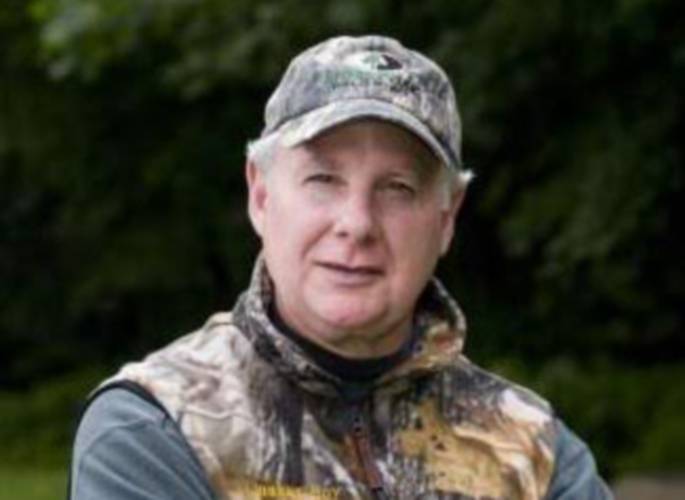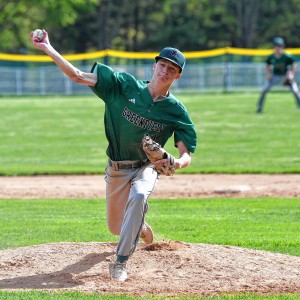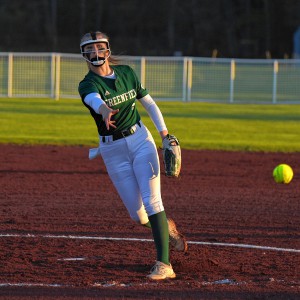On The Ridge with Joe Judd: Feeding wildlife doesn’t help

|
Published: 01-10-2024 3:49 PM
Modified: 01-10-2024 3:49 PM |
Wintertime in Massachusetts allows residents everywhere to begin their yearly ritual of feeding the birds. People love watching the many species of birds arriving at their feeders every winter. And in Shelburne, we especially love it when we see one of our grandchildren sitting quietly in a chair, near a window, watching as the cardinals, chickadees, juncos, finches, blue jays, and even various types of woodpeckers, peck away on the suet balls, and other foods that we keep on hand as they once congregate to our feeders.
But fallen bird seed can also attract many different types of wildlife, including bears, turkeys, squirrels, mice, and even predators like foxes, coyotes, and fisher cats who feed on small mammals that can be readily found at bird feeders. If you notice anything like this happening on a regular basis, you should get the feeders down as quickly as possible as unwanted wildlife in your backyard, or near your house, can cause other problems that you really don’t need.
Every year, MassWildlife receives inquiries from the public about feeding wildlife. And while people have good intentions, supplemental feeding of wildlife really does more harm than good. Most wildlife changes their behavior seasonally adapting to cold temperatures. Supplemental feeding can alter that behavior and have detrimental, and sometimes fatal, consequences. Wildlife in Massachusetts have adapted for thousands of years learning to cope with harsh winter weather, and yes, even a scarcity of food. And when it comes to feeding the birds during the winter, which is generally an acceptable practice, wildlife biologists will warn you to be mindful of what else may be hanging around your feeders other than those birds that we love so very much.
When supplemental feed sites become unnatural feeding areas for other wildlife, it can cause real problems, even placing your domestic pets in danger. It might also spread diseases for both animals and people alike. It can cause aggression and competition over food, wasting vital energy reserves that wildlife so desperately need, which could lead to injury or worse. And it can negatively impact vegetation and habitat in these areas. In other words, providing wildlife with food at any time of year teaches them to rely on humans for food, which puts them at a disadvantage for survival and can lead to human/wildlife conflicts. And once this behavior is established, it can be very difficult, or impossible, to change. So, what can we do to help, while still enjoying the birds that we love?
As I already said, backyard bird feeding during the winter months is generally viewed as an acceptable practice. But the best way to help other wildlife make it through the winter is to step back and allow their instincts to take over. To help wildlife near your home, focus on improving the wildlife habitat on or near your property by including natural food and cover like conifer, or regenerating brushy habitat. It is also important that wildlife populations are in balance with what the habitat can support. So, again, if you notice unwanted wildlife in your backyard, bring your bird feeders inside as quickly as possible.
And here’s a few other items that you might find interesting as we slowly work our way through January.
January 11: Small Game Hunting Online Class: Join MassWildlife and the New England Chapter of Backcountry Hunters and Anglers to learn all about late season small game hunting for squirrel and rabbit. The course begins at 6 p.m. and will cover squirrel and rabbit biology, regulations, equipment, where to hunt, tips for during the hunt, processing, and recipes. This class will be taught through Zoom, and you can find the link for registration by going into MassWildlife’s January Newsletter!
February 2-4: The New England Fishing Expo in Marlborough is one of the best annual fishing shows in the state. You can experience the best of new innovations and talk with some great people about saltwater, ice, freshwater fishing, and boating. You can also try out great gear, visit the manufacturers, and get tips from some of the best professionals in the Northeast.
Joe Judd is a lifelong hunter and sportsman. He is an outdoor writer, seminar speaker, member of the New England Outdoor Writers Association, and a 2019 inductee into the N.E. Turkey Hunting Hall of Fame. Joe is also on the Quaker Boy Game Calls and Bass Pro Shops/Cabela’s Pro-Staff. He can be reached at jjontheridge@comcast.netArticle continues after...
Yesterday's Most Read Articles
 Retired police officer, veteran opens firearms training academy in Millers Falls
Retired police officer, veteran opens firearms training academy in Millers Falls
 UMass graduation speaker Colson Whitehead pulls out over quashed campus protest
UMass graduation speaker Colson Whitehead pulls out over quashed campus protest
 As I See It: Between Israel and Palestine: Which side should we be on, and why?
As I See It: Between Israel and Palestine: Which side should we be on, and why?
 Real Estate Transactions: May 10, 2024
Real Estate Transactions: May 10, 2024
 Baseball: Caleb Thomas pitches Greenfield to first win over Frontier since 2019 (PHOTOS)
Baseball: Caleb Thomas pitches Greenfield to first win over Frontier since 2019 (PHOTOS)
 High Schools: Greenfield softball squeaks out 1-0 win over Franklin Tech in pitchers duel between Paulin, Gilbert
High Schools: Greenfield softball squeaks out 1-0 win over Franklin Tech in pitchers duel between Paulin, Gilbert

 High Schools: Big sixth inning propels Franklin Tech past Smith Vocational (PHOTOS)
High Schools: Big sixth inning propels Franklin Tech past Smith Vocational (PHOTOS) Bulletin Board: Frontier Mother’s Day Plant Sale takes place Saturday
Bulletin Board: Frontier Mother’s Day Plant Sale takes place Saturday Big turnout expected Sunday for 14th annual WMass Mother’s Day Half Marathon in Whately
Big turnout expected Sunday for 14th annual WMass Mother’s Day Half Marathon in Whately Keeping Score with Chip Ainsworth: Saratoga awaits the Belmont
Keeping Score with Chip Ainsworth: Saratoga awaits the Belmont
